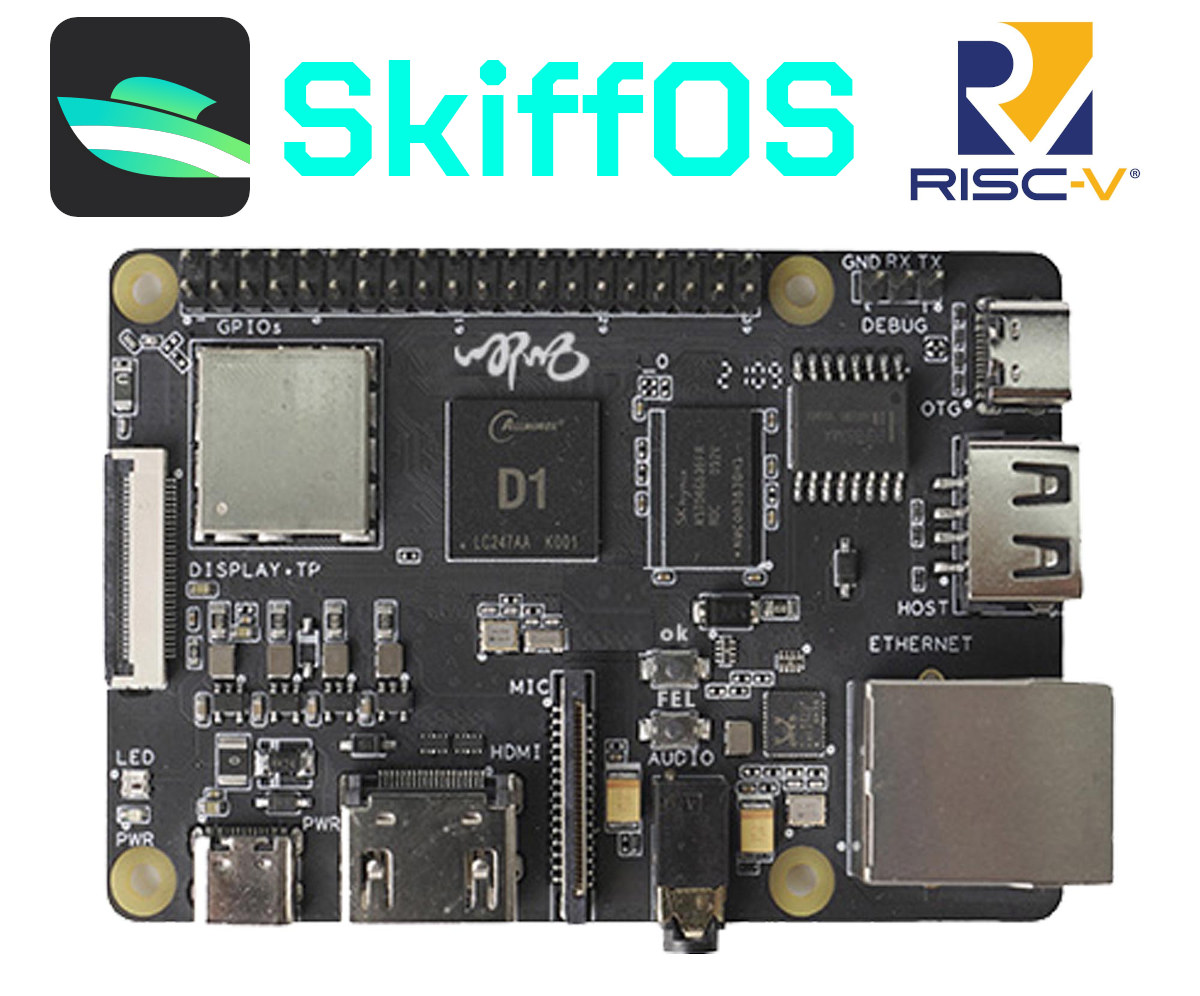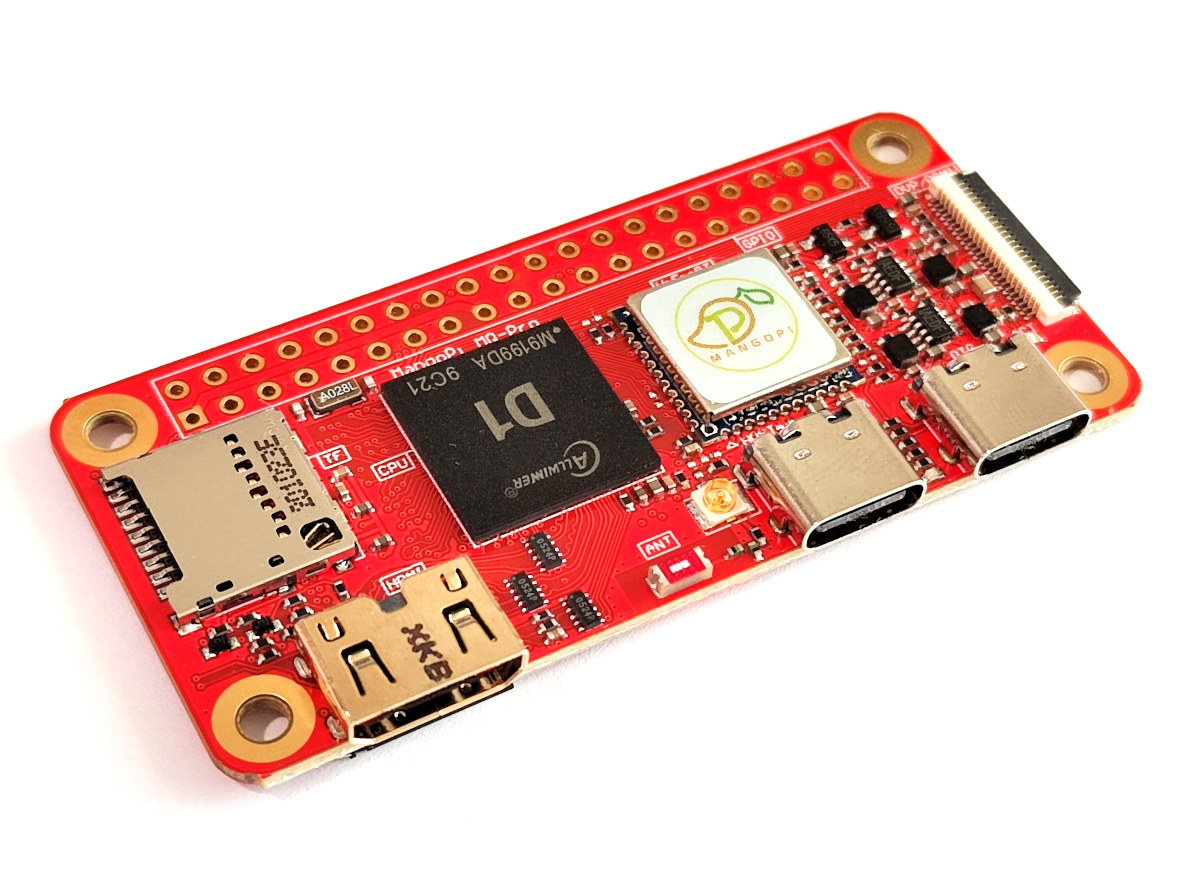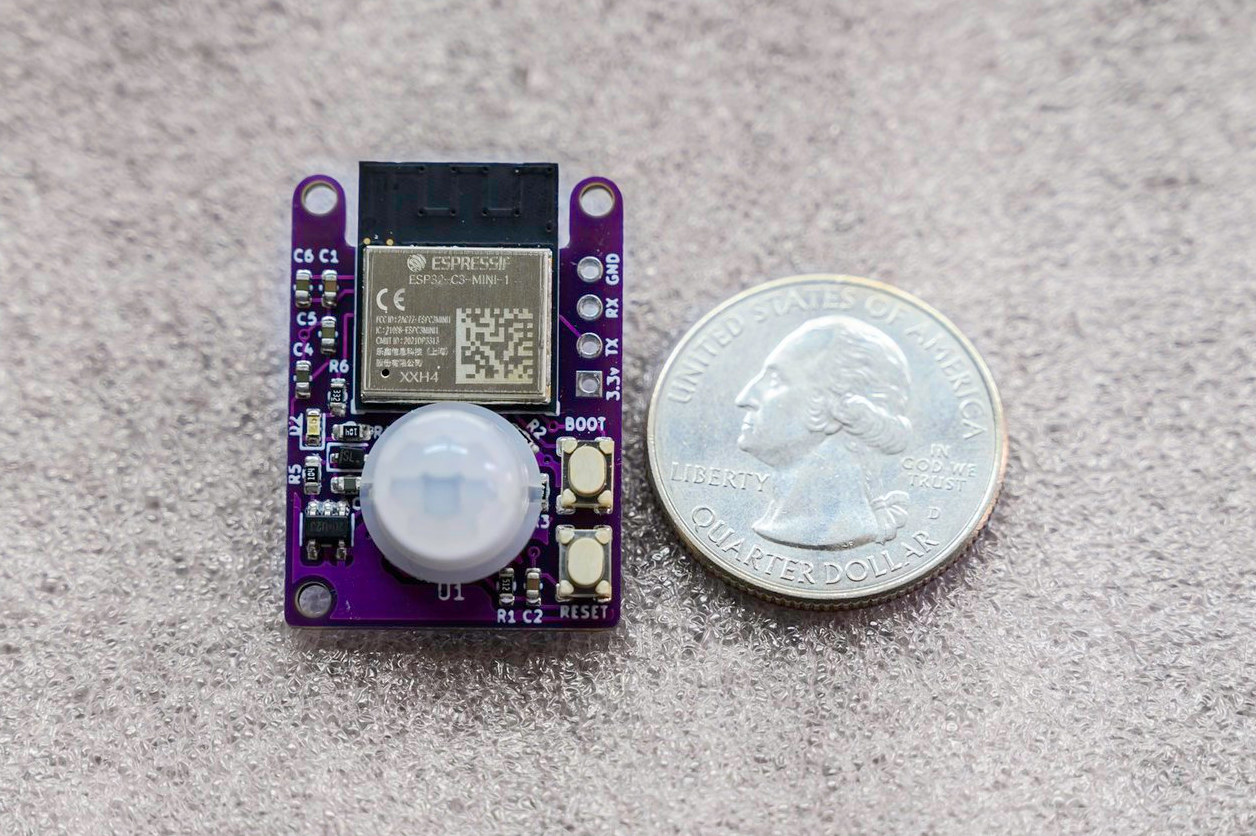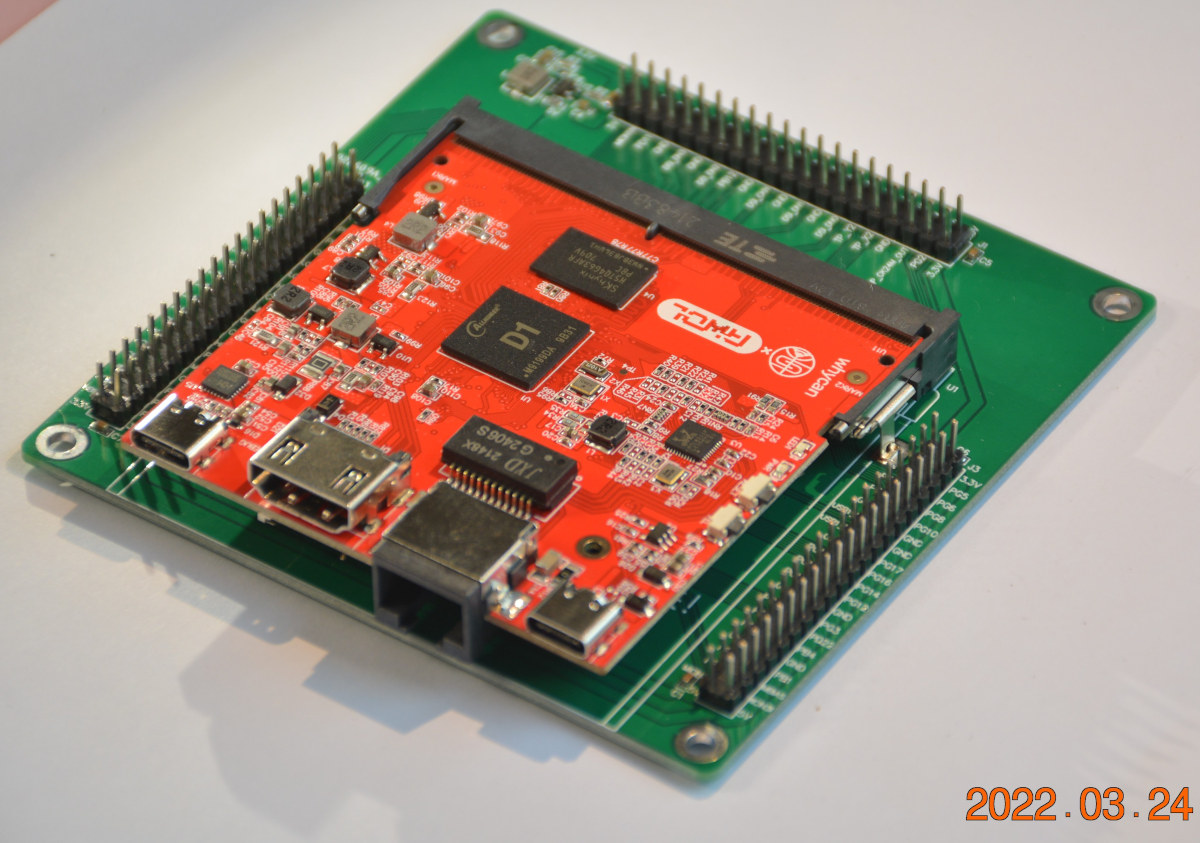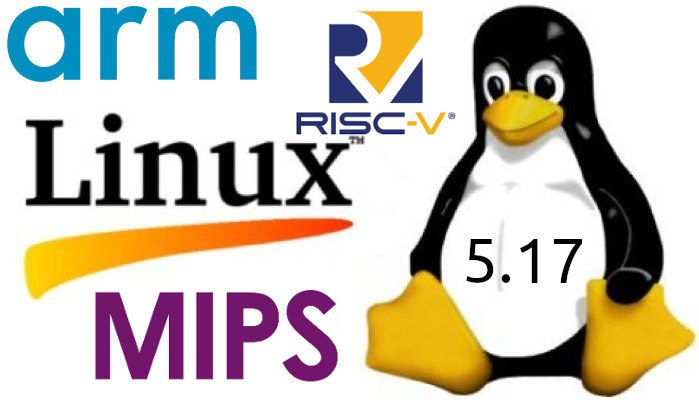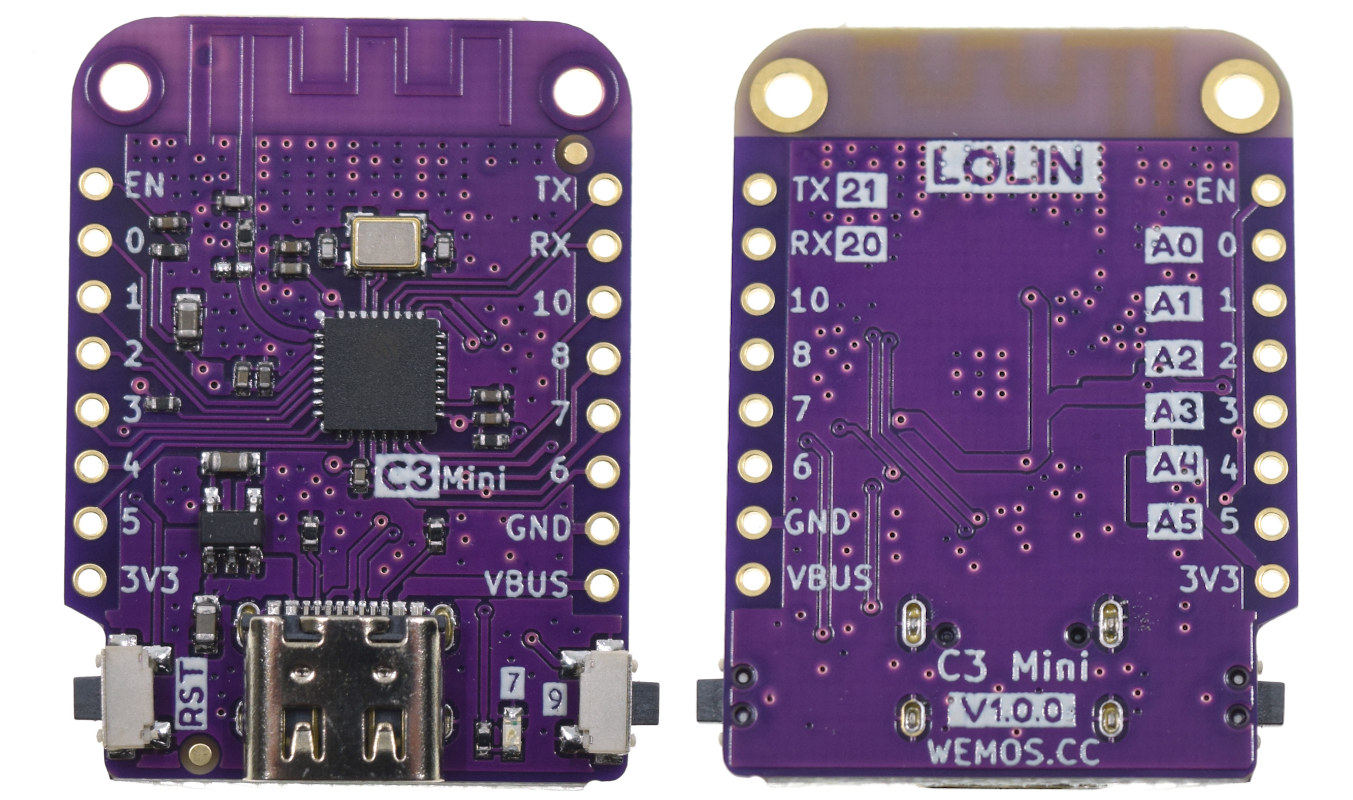QEMU (Quick EMUlator) is an open-source emulator used to run OS or programs on various architectures such as Arm, RISC-V, and many others when you don’t own specific hardware, or for quick testing. The developers have released QEMU 7.0 a few days ago with over 2500 commits from 225 developers. New features include support for RISC-V KVM and vector extensions, Intel AMX (Advanced Matrix Extension), improved flexibility for fleecing backups, various new features for Arm, and many more. QEMU 7.0 highlights listed by the developers: ACPI: support for logging guest events via ACPI ERST interface virtiofs: improved security label support block: improved flexibility for fleecing backups, including support for non-qcow2 images ARM: ‘virt’ board support for virtio-mem-pci, specifying guest CPU topology, and enabling PAuth when using KVM/hvf ARM: ‘xlnx-versal-virt’ board support for PMC SLCR and emulating the OSPI flash memory controller ARM: ‘xlnx-zynqmp’ now models the CRF and APU control […]
SkiffOS minimal Linux for embedded containers now supports Sipeed Nezha RISC-V board
SkiffOS minimal Cross-compiled Linux for embedded containers has just added support for Sipeed Nezha RISC-V single board computer, and work on the smaller Sipeed Lichee RV board has started. Wait… What is SkiffOS? I’ve never heard about it… That’s how the abstract from the white paper describes it: Embedded Linux processors are increasingly used for real-time computing tasks such as robotics and Internet of Things (IoT). These applications require robust and reproducible behavior from the host OS, commonly achieved through immutable firmware stored in read-only memory. SkiffOS addresses these requirements with a minimal cross-compiled GNU/Linux system optimized for hosting containerized distributions and applications, and a configuration layering system for the Buildroot embedded cross-compiler tool which automatically re-targets system configurations to any platform or device. This approach cleanly separates the hardware support from the applications. The host system and containers are independently upgraded and backed-up over-the-air (OTA). In other words, that’s […]
MangoPi MQ Pro – A $20 RISC-V alternative to Raspberry Pi Zero W
MangoPi MQ Pro is an Allwinner D1 RISC-V SBC that offers an alternative to Raspberry Pi Zero W with the same form factor, and most of the same features including WiFi and Bluetooth connectivity The board has been in the works for several months, but the MangoPi MQ Pro board can now be purchased for around $20 on Taobao with 512MB RAM, and I’d expect it to show up on Aliexpress and/or Seeed Studio within the next few weeks. MangoPi MQ Pro specifications: SoC – Allwinner D1 C906 RISC-V processor @ up to 1GHz with HiFi4 DSP, G2D 2D graphics accelerator System Memory – 512MB or 1GB DDR3L Storage – MicroSD card socket Display – mini HDMI 1.4 port up to 1080p60 or 4Kp30, 20-pin MIPI DSI, CTP, LVDS FPC connector Camera I/F – 24-pin DVP/RGMII connector Audio – Audio out pads Networking 2.4Ghz 802.11b/g/n WiFi 4 and Bluetooth 4.2 […]
Bee Motion Mini board combines ESP32-C3 with PIR sensor
Designed by Smart Bee Designs, the tiny Bee Motion Mini combines an ESP32-C3 wireless RISC-V SoC with a PIR sensor for motion detection reporting over WiFi, Bluetooth LE, or Bluetooh Mesh. The board was designed to be as small as possible to fit into a 3D printed case with a LiPo battery and placed/hidden anywhere you want. Motion detection range is up to 5 meters, and the Bee Motion Mini can connect to services like MQTT, ITTT, or NodeRed to trigger other devices upon motion. Bee Motion Mini specifications: Wireless module – Espressif Systems ESP32-C3-MINI-1 module with ESP32-C3 WiFi and Bluetooth LE 5.0 RISC-V SoC up to 160 MHz, 4 MB embedded flash PIR sensor – Passive infrared motion sensor with dome lens, 5-meter range I/O- UART Tx/Rx for flashing firmware, 3.3V, and GND Misc – BOOT and RESET buttons Power Supply JST PH.20 connector for LiPo battery 3.3V via […]
Dongshan Nezha STU devkit features Allwinner D1 RISC-V SoM/SBC
Dongshan Nezha STU is a development kit comprised of an Allwinner D1 RISC-V system-on-module (SoM) and a carrier board with three 40-pin headers to access I/Os from the RISC-V processor. While not quite as compact as the Sipeed LicheeRV module, the “Dongshan Nezha STU Core” module also doubles as a standalone single board computer (SBC) with USB-C, Ethernet and HDMI ports, plus a MicroSD card socket for the firmware, which reminds me of the Khadas Edge design. Dongshan Nezha STU specifications: Nezha STU Core SoM SoC – Allwinner D1 single-core XuanTie C906 64-bit RISC-V processor @ 1.0 GHz with HiFi4 DSP, G2D 2D graphics accelerators Memory – 512MB DDR3 memory (option up to 2GB – TBC) Storage – MicroSD card slot, 2Gbit serial NAND flash (MX35LF1GE4AB); Note the SPI NAND flash (U12) is not populated in the photo below. Video – HDMI port up to 1080p60 Networking – Low-profile Gigabit […]
Linux 5.17 release – Main changes, Arm, RISC-V, and MIPS architectures
Linus Torvalds has just released Linux 5.17: So we had an extra week of at the end of this release cycle, and I’m happy to report that it was very calm indeed. We could probably have skipped it with not a lot of downside, but we did get a few last-minute reverts and fixes in and avoid some brown-paper bugs that would otherwise have been stable fodder, so it’s all good. And that calm last week can very much be seen from the appended shortlog – there really aren’t a lot of commits in here, and it’s all pretty small. Most of it is in drivers (net, usb, drm), with some core networking, and some tooling updates too. It really is small enough that you can just scroll through the details below, and the one-liner summaries will give a good flavor of what happened last week. Of course, this means […]
LOLIN C3 Mini ESP32-C3 board is compatible with Wemos D1 Mini shields
Wemos LOLIN C3 Mini board is powered by Espressif ESP32-C3 WiFi and BLE RISC-V microcontroller and follows the company’s earlier Wemos D1 Mini (ESP8266) and LOLIN S2 Mini (ESP32-S2) form factor for compatibility with the original stackable Wemos D1 shields. The tiny board comes with 4MB flash embedded in the ESP32-C3 chip, a USB Type-C connector, reset and user buttons, as well as sixteen through holes for GPIOs, VBUS, 3.3V, and ground signals. LOLIN C3 Mini V1.0.0 specifications: SoC – Espressif Systems ESP32-C3FH4 single-core 32-bit RISC-V (RV32IMC) microcontroller up to 160 MHz with 400 KB SRAM, 4MB Flash Connectivity – 2.4 GHz WiFi 4 and Bluetooth 5.0 LE (in SoC) Expansion headers – 2x 8-pin headers with up to 12x GPIO, ADC, I2C, SPI, UART (3.3V I/O voltage) USB – 1x Type-C USB for 5V power and programming Misc – Reset button and button 0 also used to enter Device […]
DevTerm modular Linux terminal gets a RISC-V module compatible with Raspberry Pi CM3
ClockworkPi DevTerm retro-looking modular portable Linux computer has gotten a 64-bit RISC-V module based on Allwinner D1 1GHz SoC and offers an alternative to existing Arm-based modules such as Raspberry Pi CM3, or alternatives powered by Allwinner H6 or Rockchip RK3399 SoC’s. The new DevTerm Kit R-01 modular & portable terminal has exactly the same specifications with a 6.8-inch IPS screen, a keyboard with 67 keys, and a battery module, all connected to ClockworkPi v3.14 carrier board, but replaces the Arm modules with the R-01 module equipped with the Allwinner D1 processor and 1GB of RAM. DevTerm Kit R-01 kit items: SoM – R-01 Core module with Allwinner D1 single-core 64-bit RISC-V RV64IMAFDCVU processor @ 1.0GHz without GPU, and 1GB DDR3 Carrier board – ClockworkPi v3.14 mainboard Storage – 32GB MicroSD card preloaded with clockworkOS Display – 6.86-inch IPS screen module Audio – Dual speaker Keyboard – Clockwork 65% keyboard […]



